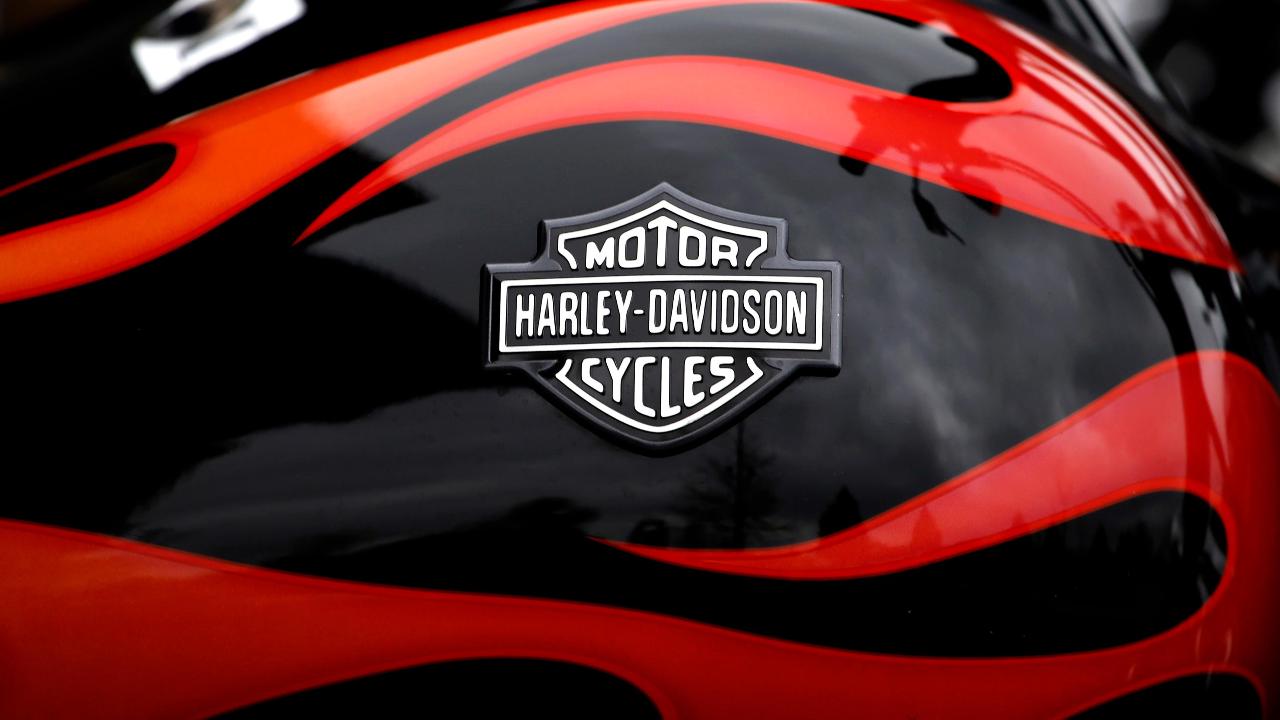Trump's Harley-Davidson attacks may be driving riders to Indian: analyst
Controversy over Harley-Davidson’s production plans, spurred on by President Trump’s support for a boycott, may be driving riders to the brand’s top U.S. rival, according to new research published Friday.
BMO Capital Markets analyst Gerrick L. Johnson said Indian Motorcycle dealers have reported an “uptick” in Harley-Davidson trade-ins in the three months after Trump took on Harley-Davidson over its announcement that it will shift some production overseas in response to European tariffs on U.S-made bikes.
The bank lowered its price target for Harley-Davidson shares to $45 from $52 and downgraded the stock to “market perform” from “outperform.”
“The overlap between Donald Trump supporters and Harley riders is significant. Thus, it’s disconcerting to have the President call on these consumers to boycott the brand,” Johnson wrote in a note sent to clients. “In response to new European tariffs on American motorcycles, HOG may have had the right financial intentions but the way it communicated its strategy was a public relations debacle.”
Johnson also noted that Indian has become a “bigger threat” to Harley-Davidson than previously anticipated. Though still trailing “hogs” in the U.S. market, Indian now controls about 7 percent of the heavyweight motorcycle market, according to BMO. Harley-Davidson said its U.S. market share was 48.4 percent in the second quarter.
A spokesperson for Harley-Davidson didn’t immediately respond to a request for comment. The Milwaukee-based company is scheduled to report earnings Tuesday.
Polaris, the parent company of Indian, will release its quarterly financial results Monday.
In June, Harley-Davidson said it would move production of bikes destined for the European market to factories outside the U.S. The move followed the European Union’s decision to hike its tariff on Harley-Davidson’s U.S.-made bikes to 31 percent from 6 percent – retaliation for Trump’s tariffs on steel and aluminum. The company also said it would absorb expenses related to tariffs, rather than lifting prices to offset those cost increases. Tariff-related expenses could total as much as $100 million annually, Harley-Davidson warned.
Trump criticized the production shift, saying in August it was “great” that “many [Harley-Davidson] owners plan to boycott the company if manufacturing moves overseas.”
In a memo to employees and dealers, Harley-Davidson CEO Matthew Levatich explained that the company has invested in overseas production to have a “fighting chance” of competing with rivals in high-tariff markets, including Europe. Levatich also acknowledged that Harley-Davidson found itself “in the center of a heated political conversation about fair trade.”
BMO’s Johnson wrote that Harley-Davidson’s plan to reallocate production was the “prudent business decision,” but the company fumbled an announcement that many dealers felt was “meant to ‘poke’ the president” for policies that have hurt the manufacturer.
“While President Trump’s assessment of [Harley-Davidson’s] actions in his tweets were often factually inaccurate, the damage has been done,” Johnson said. “Dealers are feeling an impact, and we find that the impact has become more acute over time. In July, after the announcement and the reaction by the President, almost every dealer we spoke with was dismissive, feeling any negative reactions would ‘blow over.’”
| Ticker | Security | Last | Change | Change % |
|---|---|---|---|---|
| HOG | HARLEY-DAVIDSON INC. | 20.49 | +0.40 | +1.99% |
| PII | POLARIS INC. | 69.33 | +2.10 | +3.12% |
But a recent round of channel checks with “hog” dealers revealed that a majority felt they lost at least some sales, according to BMO. In a recent survey of Indian dealers, most stores saw an increase in the number of Harley-Davidson trade-ins, although “only a small handful” of those dealers believe the Harley-Trump spat was behind the trend. Dealers also indicated that the pace of Harley trade-ins has recently been accelerating.
Johnson noted that it stands to reason Harley-Davidson dealers would want to pin lost sales on the president, while Indian dealers would want to credit their product lineup.
“Regardless, it should be disconcerting to [Harley-Davidson] investors that most Indian dealers we speak with are seeing an uptick in Harley trade-ins for whatever the reason may be,” he wrote.
Harley-Davidson’s U.S. retail sales dropped 8.7 percent year-over-year in the first six months of 2018 – before Trump’s criticism of the brand. BMO said Indian recorded a 4 percent increase in retail sales during the same period.




















